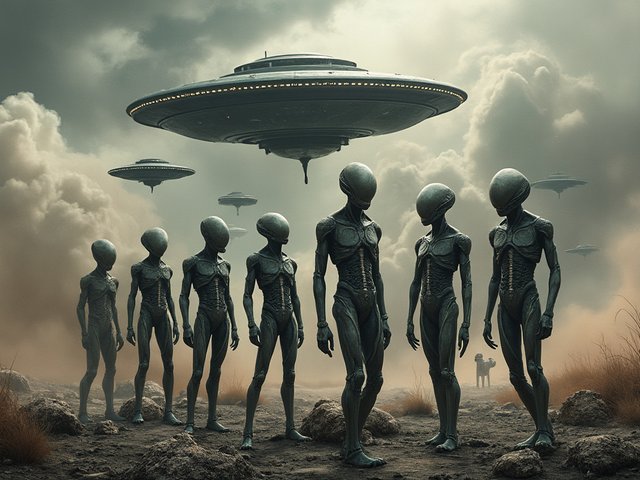There's a famous quote often attributed to physicist Arthur C. Clarke: "Two possibilities exist: either we are alone in the Universe or we are not. Both are equally terrifying." This stark dichotomy captures the essence of humanity's ongoing fascination with the cosmos. Let's delve into these possibilities, exploring why they evoke such profound fear and wonder.
Alone in the Universe
The Fear of Solitude:
Philosophical Implications: If we are the only intelligent life in the universe, it places an immense burden on us. We are the sole guardians of life's potential, with no external source from which to learn or receive wisdom.
The Drake Equation: This equation, proposed by Frank Drake, attempts to estimate the number of communicative civilizations in the Milky Way. Even optimistic adjustments often result in numbers far below what might comfort us, suggesting that intelligent life might be exceedingly rare or nonexistent. The probability of alien civilizations existing in our galaxy has been estimated with wide ranges; some calculations suggest there might be between 1,000 to 100,000,000 civilizations capable of interstellar communication. However, these figures depend on many variables, with some scientists arguing that the true number might be much closer to zero due to the immense challenges of life's evolution to intelligence.
Psychological Impact: The idea of cosmic loneliness can lead to existential dread. Are we a fluke? What does it mean for our existence if there's no one else out there?
The Silver Lining:
Uniqueness: If we are alone, then humanity's existence is a singular phenomenon, making every achievement, every piece of art, every act of kindness infinitely more precious.
Environmental Responsibility: It underscores our responsibility towards Earth, as we might be the only planet in the universe nurturing life.
Not Alone in the Universe
The Fear of the Unknown:
Potential Threats: The thought of extraterrestrial civilizations brings up scenarios from science fiction where aliens might not come in peace. The unknown intentions of advanced beings could pose a significant existential risk.
Cultural Shock: Encountering alien life would challenge every aspect of our culture, religion, and understanding of our place in the universe, leading to potential societal upheaval.
Inferiority Complex: Discovering more advanced civilizations might force us to confront our technological and perhaps intellectual inadequacies.
The Hopeful Perspectives:
Shared Knowledge: Contact could lead to an exchange of knowledge, propelling our technology and science forward in leaps we can't currently imagine.
Unity: The existence of other life forms might unite humanity in ways we've never seen, focusing our efforts on something beyond our petty differences.
Philosophical Expansion: It would expand our philosophical and existential horizons, providing new contexts for life, intelligence, and consciousness.
Conclusion
Whether we are alone or not, the implications are vast and deeply unsettling in their own ways. The fear of isolation in the cosmos tugs at our need for connection, while the possibility of alien life stirs a mix of hope, fear, and curiosity about our cosmic neighbors. Both scenarios challenge our understanding of our significance in the grand scheme of things.
The search for extraterrestrial intelligence continues with initiatives like SETI, and as we push the boundaries of what we believe possible, we might find that what once terrified us becomes a source of profound inspiration or, indeed, a new kind of fear.
Call to Action
What do you think? Does the idea of being alone terrify you more, or the thought of sharing the universe with others? Share your thoughts in the comments below, and let's explore this cosmic conundrum together.
